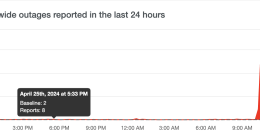
Clearview AI Inc., the controversial startup that provides facial-recognition technology to law enforcement, is rolling out new compliance features aimed at preventing abuse of the technology, Chief Executive Hoan Ton-That said Tuesday.
Speaking at The Wall Street Journal’s Tech Live virtual conference, Mr. Ton-That said Clearview would make available training and compliance features that help ensure police officers use the technology ethically to solve crimes, though it would be up to police department heads to monitor officers and enforce the rules. One new feature he described is a requirement that police enter a specific case number and crime for each search, to enable better auditing.
Clearview says its software lets authorities plug in photos of people suspected of involvement in crimes and search for other images of their faces from the internet. The company has compiled a massive database of photos by scraping websites, including social-media platforms.
Some of the platforms have accused Clearview’s scraping efforts of violating their terms of service. Facebook Inc., Twitter Inc. and Microsoft Corp.’s LinkedIn are among those that have sent the startup cease-and-desist orders. Civil libertarians have raised concerns broadly about the use of facial-recognition by law enforcement, and specifically about Clearview. The American Civil Liberties Union in May sued the company in Illinois state court, saying that it violated privacy laws by collecting images online without people’s knowledge or consent, and providing those pictures to law enforcement and private companies.
Mr. Ton-That said Tuesday that all of the information Clearview collects is public, that its actions are similar to those of other search companies that crawl the web and that private companies no longer have access to its database. The attorney representing Clearview in the ACLU lawsuit, Tor Ekeland, didn’t have an immediate comment on Tuesday.
Mr. Ton-That co-founded New York-based Clearview AI in 2017. The startup has raised more than $17 million from investors including investor and entrepreneur Peter Thiel. Venture-capital database PitchBook lists its last known valuation as $37 million. A spokeswoman for Clearview said Tuesday that it is valued at over $100 million.
Clearview says its product is used by about 2,400 law-enforcement agencies across the country as well as the U.S. Immigration and Customs Enforcement. The startup also held talks this year with state agencies about using its technology to track patients infected by the coronavirus, The Wall Street Journal has reported.
Some other tech companies capable of building facial-recognition technology have been more restrained in deploying it. Microsoft pledged this year not to sell facial-recognition technology to police until there was national regulation governing its use. Amazon.com Inc. also paused police use of its facial-recognition technology, and International Business Machines Corp. said it had exited the business.
Facial-recognition technology has always been controversial, and concerns about widespread bias in the technology that would lead to false matches, particularly with regard to Black people, has grown in recent months amid nationwide protests over racism in policing. Cities including San Francisco, Portland and Boston have passed bans on using the technology.
Mr. Ton-That said the question isn’t whether law enforcement will use such tools but how: “It’s a technology that is here to stay.”
He added that much of the criticism of his company has resulted from misunderstandings of its technology, which he said can help solve a range of crimes. He said the Department of Homeland Security, which includes ICE, is deploying Clearview AI’s tools to solve crimes involving young children, using facial recognition to identify both child victims and perpetrators.
“It’s really to catch pedophiles, and that’s what the unit does,” he said.
Mr. Ton-That acknowledged the agency could use the technology in other ways, such as to search for undocumented immigrants.
“It’s not our job to set the policy as a tech company,” he said. “It’s up to us to help them execute what they want to do…We are here to help the government and fulfill their vision in keeping us safe.”
Write to Heather Somerville at [email protected]
Copyright ©2020 Dow Jones & Company, Inc. All Rights Reserved. 87990cbe856818d5eddac44c7b1cdeb8
This post first appeared on wsj.com







